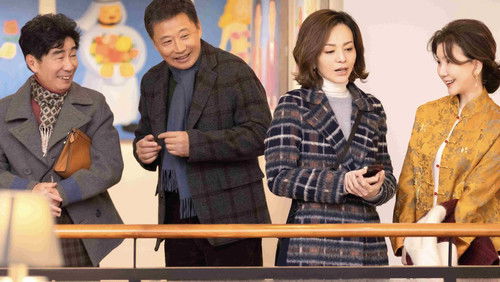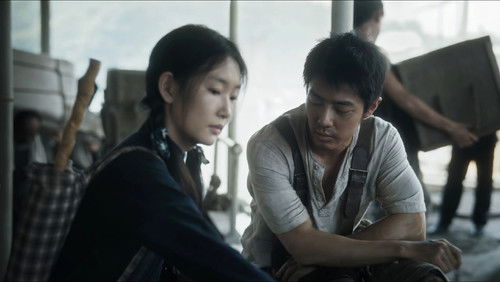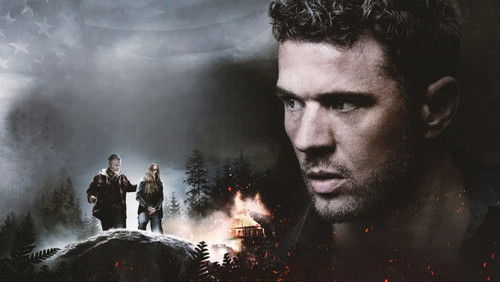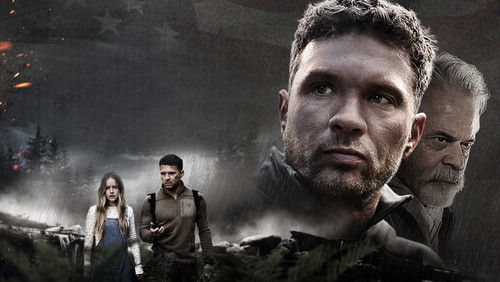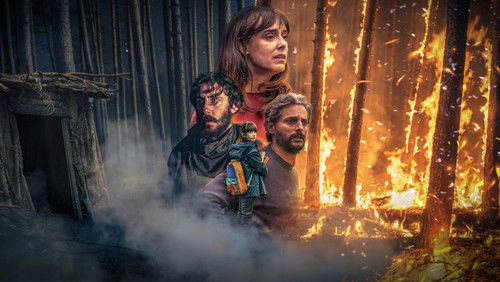The Body (2001)
61KThe Body: Directed by Jonas McCord. With Antonio Banderas, Olivia Williams, John Shrapnel, Derek Jacobi. A crucified body dated back to the first century A.D is uncovered at an ancient cave in Jerusalem. Trouble ensues as word spreads.
“Well, an Israeli widow, Olivia Williams, uncovers a hidden tomb in Jerusalem, and there is some suggestion that it might be that of Christ. This causes a considerable stir in the Vatican because, after all, Christu0026#39;s body shouldnu0026#39;t be there unless he was an ordinary man. So they send Father Antonio Banderas down there to investigate, telling him ahead of time, so that he doesnu0026#39;t misunderstand his mission, that u0026quot;the body is not that of Christ.u0026quot; u003cbr/u003eu003cbr/u003eBanderas and Williams form at first a kind of mismatched cop/buddy team, he instense and inhibited, she breezily outgoing and scientific. But they soon run into trouble that pulls them together in their goals. I admit I didnu0026#39;t understand all of the reasons why so many groups wanted to interfere with the investigation or to exploit the find for political purposes. The first trouble they run into is an orthodox Jewish sect whose members bombard them with rocks and steal an important artifact. Then there is the leader of a Palestinian group, the PLO, I mean the FLP, or rather the PDQ. He wants his henchmen to get their hands on the bones. I forget why but Iu0026#39;m sure the purpose is nefarious. You can tell because heu0026#39;s got a face on him like the assassin in Hitchcocku0026#39;s u0026quot;The Man Who Knew Too Much.u0026quot; And you can identify his thugs when you see them because theyu0026#39;re all swarthier than everybody else. The head Israeli honcho in this business, Shrapnel, informs the Vatican that as soon as Jerusalem is recognized as the sole capital of a united country, the bones will be released. (I understood that.) This all leads to a final semi-violent confrontation between the PDQ leader and the priest, in which the latter is wounded and the former is blown to smithereens. Oh, that reminds me, there is some comic relief from a sloppy young Irish priest who is a computer hacker. The question of whose body it is, is resolved at the end, but nobody in the movie finds out about it, only the viewer. Father Banderas resigns his commission and decides to follow God in his own way. He writes a very nice letter to Williams, but the movie stops short of having them fall into each otheru0026#39;s arms. Letu0026#39;s not disturb anybody by raising REAL problems. (Are we going to observe Shabbat? How are we going to raise the kids?) u003cbr/u003eu003cbr/u003eThe photography is okay, and itu0026#39;s an interesting exploration of modern Israel and the political and ethnic maelstrom that it is, while at the same time much less didactic than u0026quot;Exodus,u0026quot; which might have been called u0026quot;Zionism for Dummies.u0026quot; The acting is better than one might expect. Antonio Banderas has a sympatico appearance. He exudes sincerity in this part. And heu0026#39;s not a bad actor, the kind of ordinary man who engages us without being particularly glamorous, the way some European actors like Jean-Louis Trintignant or Jean Moreau do. Olivia Williams isnu0026#39;t quite as convincing but she is very sexy and appealing, and looks the part of a 30-ish practical-minded Israeli woman, worn but warm. She almost, but not quite, gives Banderas some chicken soup one night. The musical score sounds like itu0026#39;s from a stock library somewhere, from a file labeled u0026quot;Suspense music.u0026quot; Shrapnel looks the part of the Israeli honcho too. He sounds uncannily like Paul Stewart. u003cbr/u003eu003cbr/u003eThis isnu0026#39;t a puzzle that I find particularly interesting, although I donu0026#39;t know why. Religious belief leads so regularly to violence and intrigue. But I donu0026#39;t really think that if a body were positively identified as Christu0026#39;s it would change things very much. Cognitive dissonance theory suggests that, if anything, it would strengthen our beliefs in some way. (Cf., u0026quot;When Prophecy Fails.u0026quot;) The problem would at least be papered over somehow. Iu0026#39;m happy that I watched it, I suppose, if only because of Olivia Williams and Antonio Banderas, both of whom are worth watching, for somewhat different reasons, but in fact I did spend two hours following this complicated story and may just be reducing post-decision dissonance.”




